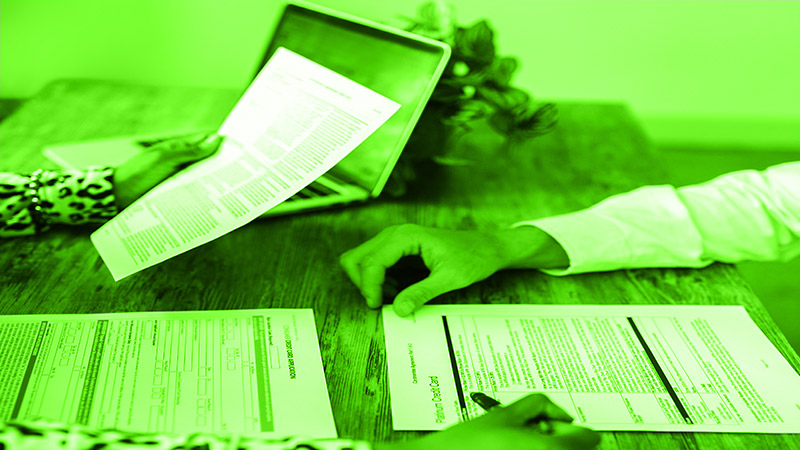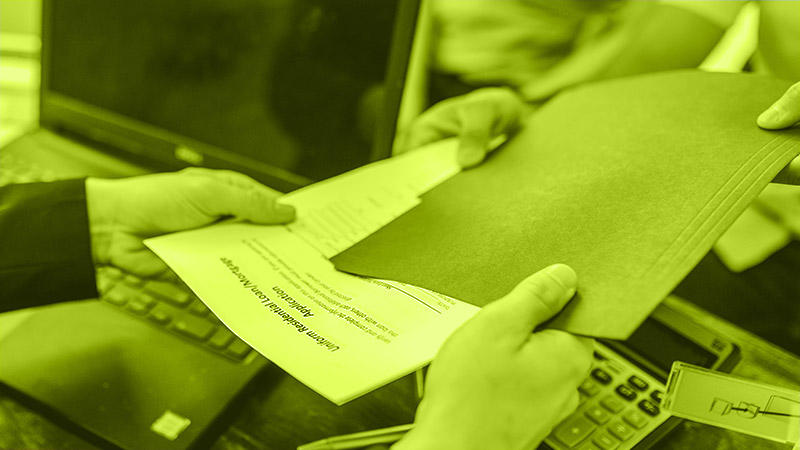Most lenders can allow you to pay off someone else’s mortgage. You don’t need to be related to the homeowner to pay off their mortgage or make a mortgage payment.
You can pay someone else’s mortgage to help them out when they’re in a tight spot or simply because you’re in a giving spirit.
You can even do it anonymously with the correct information.
But what happens when you pay off someone else’s mortgage, and are there any implications? Read on to find out.
Can You Pay Off Someone Else’s Mortgage?
Yes. Lenders will not prevent you from paying off someone else’s mortgage.
However, they’ll ask you a few questions before they accept the funds for repayment for due diligence reasons.
These can include questions like why you’re doing it, the relationship between you and the mortgage owner, where the money comes from, and how you accumulated it.
The lender is responsible for determining why the transaction is happening to satisfy anti-money laundering guidelines and checks.
They must establish the source of any funds, especially significant funds, that they receive into the customer account from third parties who aren’t adding their name to the mortgage.
What Do You Need to Provide to Pay Off Someone Else’s Mortgage?
The lender can request a copy of your recent bank statements before finalising the repayment and closing the mortgage account. The bank statements can help clarify the source of the funds.
They’ll also ask for your passport or driving license to verify your identity and a written statement from you as the payer outlining the circumstances of why you’re making the payment.
Most times, it can be a signed letter outlining the following:
- Your name
- Your relationship with the homeowner
- The value of the payment
- Confirmation that the payment isn’t a loan and the payee doesn’t need to repay it.
- Confirmation that you don’t have any interest in the property
Sometimes, lenders can refuse to accept the payment or complete the transaction.
For example, if there appears to be a strenuous link between you and the payee or if they suspect any fraudulent activity.
However, most lenders will comply with your request provided there’s clear evidence of where the money is coming from and a valid relationship between you and the mortgage owner.
Related reading:
- Reasons for remortgaging.
- Remortgaging to release equity.
- Remortgaging to buy another property.
- Remortgaging with bad credit.
- Remortgaging for home improvements.
- I own my house outright can I remortgage?
- Capital raising mortgages.
Are There Any Tax Liabilities When You Pay Off Someone Else’s Mortgage?
Yes. Although it’s very generous to pay off someone else’s mortgage, the recipient could face some inheritance tax (IHT) implications in the future.
In the UK, the HMRC allows each person an annual gift allowance of £3,000 for IHT purposes.
You can give any number of people this amount annually, and it won’t count toward the value of your estate when you die.
However, any money gifted above this amount is considered a potentially exempt transfer (PET).
A PET is tax-free only if you live for seven years after giving the money.
The recipient may have to pay inheritance on some of the money if you die sooner, depending on when you die.
How Much Tax Will Be Due on A Potentially Exempt Transfer (PET)?
Inheritance tax is charged at 40% on the total value of your estate and above the nil-rate band allowance.
The Inheritance Tax Act currently sets the nil-rate band at £325,000.
For any amount considered a PET, the tax charge decreases by 20% each year on a sliding scale during the seven years.
Here’s how much inheritance tax might be due on PETs:
|
Years Between Gift and Death |
Tax Rate on PET |
|
0-3 years |
40% charge |
|
3-4 years |
32% |
|
4-5 years |
24% |
|
5-6 years |
16% |
|
6-7 years |
8% |
|
0-3 years |
40% charge |
There will be no tax liability if the value of your estate is below £325,000 when you die.
Ensure you speak with a professional and experienced mortgage broker or tax advisor before paying off someone else’s mortgage.
They can ensure the process goes smoothly and correctly and help you understand the tax implications.
For example, let’s assume you had agreed to pay off your son or daughter’s mortgage as a gift or to assist them during a period of financial difficulty.
If the outstanding balance owed is £200,000, the amount, once paid, would be classed as a PET for IHT purposes.
If you died within four years, and your total estate – including the PET – was higher than the nil rate band, your child would have a 24% IHT tax liability to pay for this gift (£200,000 x 24% = £48,000).
How Can I Minimise Inheritance Tax when Paying Off Someone Else’s Mortgage?
When paying off someone else’s mortgage, you can use various strategies to minimise the potential inheritance tax. These include:
- Using other gift allowances – If you’re a parent or grandparent, you can use other gift allowances that will not affect inheritance tax. These include giving up to £2,500 for a grandchild’s wedding or up to £5,000 for a child’s wedding.
- Using a trust – You can also set up a trust to manage mortgage payments and reduce the impact of inheritance tax. Trusts are legal agreements that allow you to transfer assets to a separate legal entity, which a trustee manages for the benefit of the trust’s beneficiaries.
- Making regular payments – Consider making regular contributions towards the mortgage instead of a lump sum if you can afford it. Such payments can be exempt as they’re considered part of normal expenditure.
How Can You Pay Off Someone Else’s Mortgage Anonymously?
You can pay off someone else’s mortgage anonymously if you have the right information.
You only need to find the mortgage company and account number through public records and make the payment.
To stay anonymous, you can make the payment using a money order mailed with no return address.
The name of a mortgage holder’s lender and the mortgage holder’s account number are generally publicly available.
Final Thoughts
Paying off someone else’s mortgage is a very generous gesture, but it can have tax implications you need to be aware of.
Ensure you consult an experienced tax advisor who can explain the potential tax implications for you and the recipient.
Sources and References

















